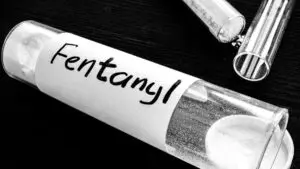Rehab is designed to help you build a strong foundation for living a life of sobriety. Although the weeks and months after you depart from rehab can be challenging in many ways, the strategies you developed during treatment can keep your recovery on track. By learning how to protect your sobriety after leaving rehab, you can prevent relapse. Remember that recovering from a substance addiction is a process that varies from person to person. But for most people, the process doesn’t end when a rehab program is completed. It can extend for months–even years.
Substance addiction is a chronic illness that requires ongoing management. In fact, the only way to effectively manage it is with abstinence from drugs or alcohol. At Tangu, we help each person develop strategies that will help them ward off relapse. These coping methods can protect your recovery even during the tough times. The longer you practice them, the more likely they will become habitual–the good habits that will guide you to lasting recovery. The following tip can help you guard your sobriety as you recover from your addiction.
Identify Aspects of Relapse Early
Did you know that relapse, itself, is often a process? There are phases of relapse that occur before a person ever takes a drink of alcohol or uses a drug. Learning about these phases and warning signs is essential for keeping your recovery journey on its track. The first stage of relapse is the emotional phase. It involves the negative emotions we all experience at one time or another. Emotions such as sadness, anger, and fear are powerful, but unless we are able to cope with them in a healthy manner, they can become the trigger for unhealthy behaviors–like turning to alcohol or drugs.
If you do not employ healthful strategies for managing your negative feelings, you may progress to the second stage of relapse. During the mental phase, you may begin to fantasize about having a drink or using drugs. Thinking about using these substances is a dangerous phase of relapse. It’s vital to employ a strategy that helps you eliminate these harmful thoughts and temptations. The last stage of relapse is the physical stage–when you show up at a setting where addictive substances are likely to be used and you actually take that first sip of alcohol or use that drug.
Rely on Aftercare
Many rehab programs last 30, 60, or 90 days. Yet, we know that recovery can take much, much longer. Some people may feel vulnerable for months or years after rehab. This is normal. Everyone’s path to lasting recovery is different. What is important is to always remember that you can reach out for help even after you leave rehab. Rely on aftercare solutions to help you safeguard your sobriety. Some people opt to meet with their counselor or therapist on a weekly, biweekly, or monthly basis. Some people attend addiction support groups or groups such as AA or NA. There are also support groups that plan activities like hiking or camping as a means to cope with recovery in novel ways.
You’ll want to rely on aftercare programs that are ideal for you. Tangu can recommend activities for you such as restorative yoga or music therapy. As you re-integrate into your life after rehab, you’re going to face different challenges. Be sure to have your support ready for those times you may need it. While these support programs may be less intensive than rehab programs, they can provide that extra help just when you need it most. Many studies have determined that ongoing addiction care in the form of aftercare programs can help reduce the risk for relapse.
More Tips to Maintain Sobriety
You’ll find that there are many ways to cope with negative emotions and other triggers for relapse in healthy ways. Some strategies will work more effectively for you than others. Try different tips to learn what works for you. Here are a few strategies that are known to help during the addiction recovery process:
- Avoid risky settings like nightclubs or bars
- Eat a healthy diet
- Get plenty of sleep
- Exercise routinely (walk, job, or bike)
- Avoid dysfunctional relationships that tear you down
- Attend family therapy
- Avoid friends / acquaintances that abuse drugs or alcohol
- Volunteer
- Discover new hobbies
- Travel
- Focus on spirituality
- Set new goals
- Journal
- Spend time in nature
- Visit museums or other cultural attractions
In spite of the challenges and difficulties you might experience during recovery, there will be positive experiences too. Your recovery period is an amazing opportunity to transform your life and health for the better. Tangu would like to help you meet your long-term recovery goals. Contact us at 404-220-7362 to learn how we can help you achieve the sober life you crave.



